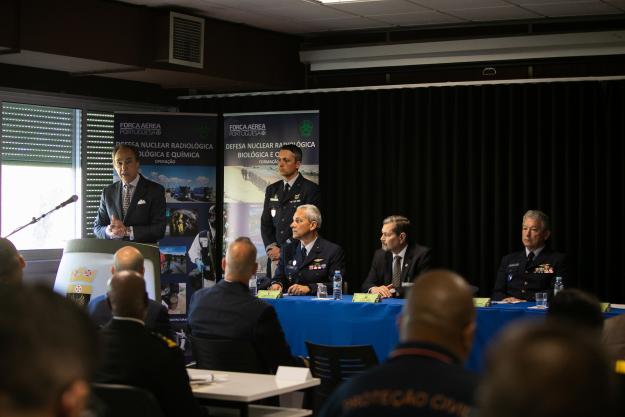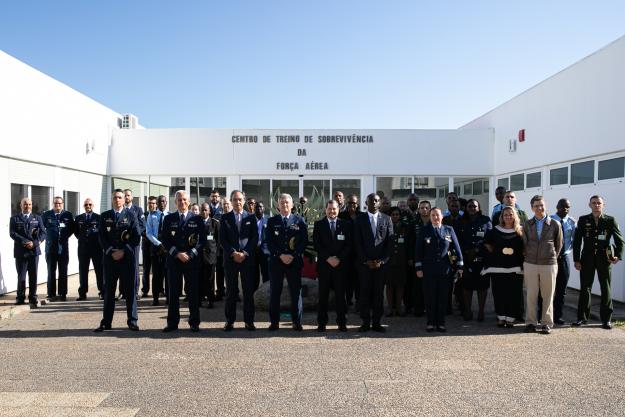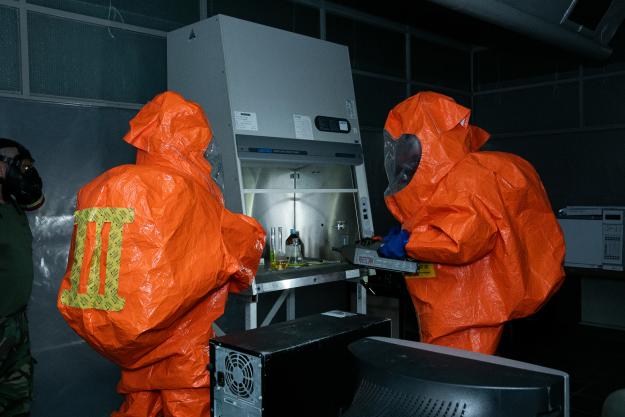
THE HAGUE, Netherlands — 28 May 2024 — The Assistance and Protection Training Cycle of the Organisation for the Prohibition of Chemical Weapons (OPCW) for Portuguese-speaking countries completed its second phase in Lisbon, Portugal, between 15 and 19 April. The course helps expand national capabilities in chemical emergency preparedness.
Twenty-four participants from countries with Portuguese as an official language attended the Advanced Course on Assistance and Protection at the Portuguese Air Force Survival Training Centre. This training follows the initial Basic Course conducted in Angola in 2022, concluding the Lusophone training cycle.
Furthering the ideas covered in the Basic Course from the personal level to the unit level, the Advanced Course and Exercise revisited concepts related to the use of protective equipment, effects and characteristics of chemical warfare agents, hazard prediction, detection and monitoring, sampling, contingency planning, and risk assessment.

Ambassador Afonso Malheiro, President of the National Authority for the Implementation of the Chemical Weapons Convention (CWC) in Portugal, expressed his appreciation for the successful cooperation between Portugal and the OPCW and stated: “Portugal remains committed to supporting the full implementation of the Chemical Weapons Convention, especially in the areas of non-proliferation, international cooperation, and assistance and protection. Under the framework of Article X of the Convention, we continue promoting cooperation with other States Parties in particular with regard to Portuguese-speaking countries.”
The event was attended by 24 delegates from seven Portuguese-speaking countries: Angola, Brazil, Cabo Verde, Guinea–Bissau, Mozambique, Portugal, and São Tomé and Príncipe.

Background
Under Article X of the Chemical Weapons Convention, Member States “[…]have the right to participate in, the fullest possible exchange of equipment, material and scientific and technological information concerning means of protection against chemical weapons.”
As the implementing body for the Chemical Weapons Convention, the OPCW, with its 193 Member States, oversees the global endeavour to permanently eliminate chemical weapons. Since the Convention’s entry into force in 1997, it is the most successful disarmament treaty eliminating an entire class of weapons of mass destruction.
In 2023, the OPCW verified that all chemical weapons stockpiles declared by the 193 States Parties to the Chemical Weapons Convention since 1997 — totalling 72,304 metric tonnes of chemical agents — have been irreversibly destroyed under the OPCW’s strict verification regime.
For its extensive efforts in eliminating chemical weapons, the OPCW received the 2013 Nobel Peace Prize.
